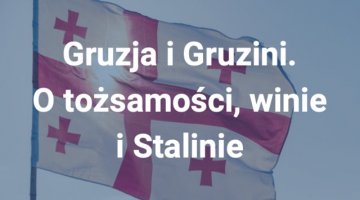The political crisis in Georgia
In the last days of October, the Georgian Dream (GD) government inspired and undertook a series of actions directed against Georgia’s largest opposition party, the United National Movement (UNM), a grouping of politicians from the camp of the former President Mikheil Saakashvili. The most important of these actions include: the publication of material compromising the previous ruling team; organised attacks on UNM offices by groups linked to the authorities; an investigation into the opposition’s alleged preparation of a coup; and a series of confrontational statements by Prime Minister Irakli Garibashvili. The conflict over the UNM-linked Rustavi-2 television station, which the government is trying to take control over, has also worsened. At the same time, an intensification of friction between President Giorgi Margvelashvili and the prime minister and informal leader of GD, the oligarch Bidzina Ivanishvili, has become apparent. The US, the OSCE and the EU, among others, have expressed concern about the developments in Georgia.
The main reason for the Georgian government’s offensive against the opposition is its tenuous political position in the run-up to the parliamentary elections scheduled for autumn 2016, as well as increasing public frustration at the deteriorating economic situation. Matters in Georgia are developing dynamically: in the coming weeks we may expect the government to take further actions against the UNM, as well as an intensification of the political conflict. This may not necessarily lead to the emergence of authoritarian tendencies in Georgia, but more likely to internal instability.
Georgian Dream’s offensive
GD’s actions targeted at the Saakashvili camp (currently Mikheil Saakashvili is the governor of Odessa oblast in Ukraine; there is an arrest warrant out for him in Georgia) have been proceeding with varying intensity since it won the parliamentary elections in 2012. Until now, this activity has been focused on initiating criminal cases against key UNM politicians, many of whom have been sent to prison (including Vano Merabishvili, the former head of the Interior Ministry, and Bacho Akhalaia, the former defence minister). In recent weeks, however, the campaign against the opposition has clearly taken on momentum. In late August, a Tbilisi court froze assets owned by the opposition television station Rustavi-2, after its former owner (who is linked to GD) demanded the annulment of the sale of the station ten years ago. The station’s managers and the UNM claim that the case is politically motivated, and represents an attempt by the government to take control of the station. They have organised several demonstrations in support of the station’s independence, and have announced that they will not comply if the court’s judgement goes against them.
On 17 October, a Ukrainian internet site published video recordings from 2011 discrediting Saakashvili’s camp. They depict scenes of torture (including rape) committed by then representatives of law enforcement agencies. Over the next few days, GD supporters organised public showings of the recordings in several cities. On 19-20 October, demonstrations organised by groups linked to GD protesting against the UNM were held in several cities (including Kutaisi, Batumi, Zugdidi, Poti and Rustavi), where participants demanded that the opposition party be banned. In several cases the party’s local offices were severely damaged (violent clashes, the destruction of property). Tensions were also escalated by a statement from Prime Minister Garibashvili, who said that the United National Movement is a “criminal organisation” which should have no place in Georgian politics, and that “public anger” against the former government was “natural”. In addition, on 24 October the National Security Service of Georgia opened an investigation into the alleged preparation of a coup d’état. In connection with this case Giga Bokeria, one of the UNM’s leading politicians, was taken in for questioning. This move resulted from a report on a Russian internet site, according to which Bokeria allegedly discussed the possibility of organising a coup in Georgia with Saakashvili.
An additional element of the political crisis in Georgia is the intensification of the conflict between the leaders of GD (Bidzina Ivanishvili and Prime Minister Garibashvili) and President Giorgi Margvelashvili, who has been distancing himself from the ruling party despite originally running as its candidate. The head of state, who has been trying to portray himself as a nonpartisan guardian of Georgia’s democracy and its pro-Western course, criticised Garibashvili for escalating the tension, called on politicians to refrain from actions that threaten the constitutional order, and launched consultations with the leaders of the major parties. Ivanishvili, for his part, has criticised Margvelashvili harshly, accusing him of effectively favouring the UNM.
The campaign against the opposition as a sign of political crisis
The unprecedented attacks on the opposition coincided with the publication of opinion polls conducted by the US-based National Democratic Institute, which were unfavourable for the government. 15% of respondents said they support the UNM (an increase from 13% from May), while only 14% supported GD (down from 21%). Up to 50% of respondents answered that they did not know who to vote for or refused to answer (support for the other parties ranged from 3-5%, including openly pro-Russian parties which received 12% in total). The government’s ad hoc actions are likely intended to distract the public from the adverse polls.
In the wider context, the government’s attacks on the UNM are yet another manifestation of the deepening internal crisis in Georgia. Other symptoms of this include dwindling support for the government; a huge loss of confidence in the political class; the crisis of the party system; the opaque decision-making process (Bidzina Ivanishvili’s behind-the-scenes rule, together with the inertia of the government and individual officials); signs that corruption and nepotism among officials is re-emerging; and a publicly palpable increase in crime levels. This is all accompanied by increased social frustration, resulting mainly from the lack of improvement in the material situation over the last three years (e.g. high unemployment), as well as increasingly strong Eurosceptic and pro-Russian moods.
In the light of these challenges, as well as due to the lack of a clear vision for the further development of the country, Georgian Dream is using a very familiar political tool in the form of taking revenge on the Saakashvili camp.
The international context
Another important reason for the deepening political crisis in Georgia is the international context, which is changing to the detriment of Tbilisi and its pro-Western foreign policy course. Georgia, which was once the centre of Western attention, today finds itself of marginal interest to the EU and the US (which are focused on domestic problems and the situation in the Middle East). The prospect of Georgian membership in Euro-Atlantic structures seems even less realistic than it did a few years ago, and the benefits of signing the Association Agreement with the EU are doubtful in the short term, and have gone unnoticed by the public. Another unfavourable factor is the deepening chaos in the Middle East, including in Turkey, which borders on Georgia. At the same time, the South Caucasus is seeing a marked increase in the involvement and influence of Russia (including the strengthening of Russian-Azerbaijani relations), in whose interest the deepening internal crisis in Georgia lies, as it could potentially facilitate the derailment of Tbilisi’s pro-Western course.
Prospects for further developments
In the coming weeks, an escalation of tension in Georgia is highly likely; nor can it be ruled out that the government will resort to drastic measures (such as an attempt to proscribe the UNM, or use repression against the key activists), as may the opposition (for example, by organising further demonstrations). In Georgian conditions, however, the re-emergence of authoritarian tendencies is unlikely, due to the lack of such a tradition, a relatively strong civil society, and the weak position of Georgian Dream. Equally unlikely is a grab for power by the United National Movement, which cannot count on a significant increase in public support. In such a situation, the most likely scenario for the development of the situation in Georgia is the deepening of the internal conflict, which threatens to destabilise the country.




